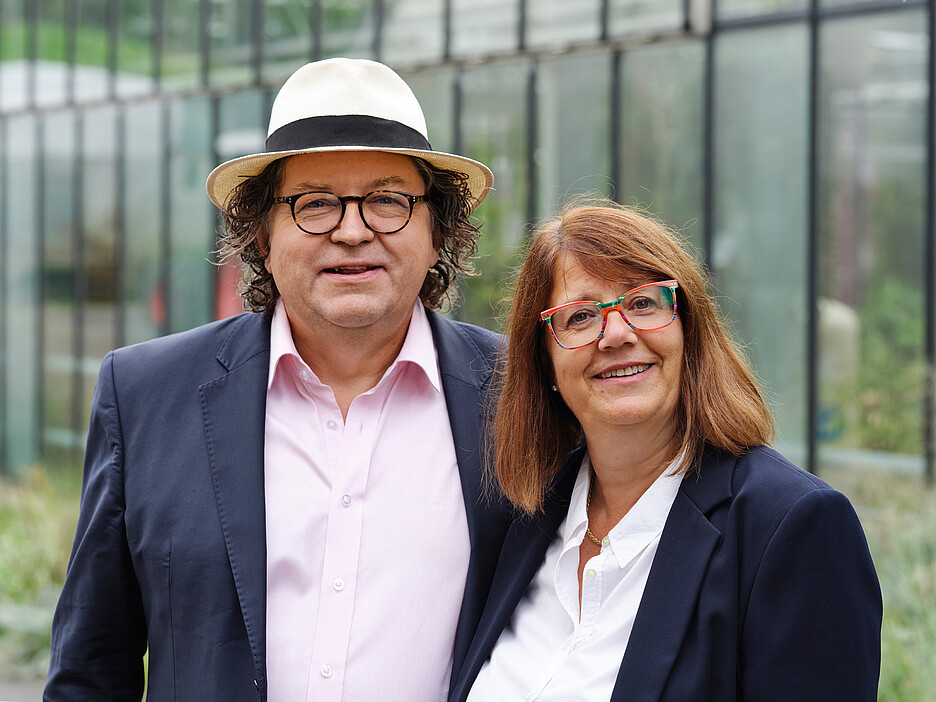
Planetary Health episode 7: Metasynthesis in Food Production
For thousands of years, human survival has been inextricably linked to agriculture and the natural ecosystems that support it. What if we could produce food without sunlight, without vast tracts of land, and even without traditional crops?
From the earliest days of farming, societies have relied on photosynthesis, sunlight, soil, and water to grow the food that sustains us. This reliance on nature has created a food production system that is both fragile and resource-intensive. What if we could break free from this dependence?
Enter metasynthesis, a revolutionary process that bypasses the traditional biological systems of food production, allowing us to create food in entirely new ways. Through technologies such as CO₂-based protein production, fermentation powered by renewable energy, and the use of microbial processes, metasynthesis offers a glimpse into a future where food is synthesized rather than grown. Companies like Solar Foods and Calysta are already demonstrating the viability of these technologies, promising a more sustainable and resilient food system.
Food production: a fragile system
Today’s global food system is heavily reliant on traditional agricultural practices, which come with significant environmental costs. Agriculture is responsible for approximately 26% of global greenhouse gas emissions and is a leading cause of deforestation, water depletion, and 70% of biodiversity loss. Industrial farming practices, driven by the need to feed a growing global population, have led to the degradation of soils, contamination of water sources, and the loss of ecosystems.
Moreover, the system is increasingly vulnerable to climate change. Rising temperatures, unpredictable weather patterns, and droughts threaten crop yields and food security, particularly in regions that depend on subsistence farming. As the global population is expected to reach nearly 10 billion by 2050, these pressures will only intensify.
Metasynthesis, by bypassing the natural processes of agriculture, offers an opportunity to not only decrease the environmental footprint of food production but also increase resilience in the face of climate change.

CO₂-based protein production
One of the most promising examples of metasynthesis in food production comes from Solar Foods, a Finnish company that has developed a process to create a protein-rich product called Solein. Solein is made through a process that uses CO₂ captured from the air, water, and renewable electricity to grow microbes in a bioreactor. The microbes convert the CO₂ into protein through fermentation, much like how yeast ferments sugar into alcohol.
What makes Solein so revolutionary is that it can be produced independent of agricultural land, sunlight, or weather conditions. In other words, it can be made anywhere in the world, regardless of the local climate or soil quality. According to Solar Foods, Solein has the potential to be produced with 100 times less water and significantly fewer greenhouse gas emissions than traditional animal farming. This technology could prove especially beneficial in regions where agriculture is difficult, such as deserts or urban environments.
Calysta, another key player in this space, is working on a similar process that uses methane-metabolizing bacteria to produce protein. Their product, FeedKind, is primarily designed as an alternative feed for aquaculture and livestock, but the underlying technology could also be adapted to produce protein for human consumption.
Deterritorialization of Food Production
A key advantage of metasynthesis is its ability to deterritorialize food production, effectively breaking the dependence on land and natural ecosystems. Traditional agriculture requires vast amounts of arable land, often leading to deforestation and habitat destruction to make way for crops and livestock. This process of land-use change has devastating consequences for biodiversity and contributes significantly to climate change through the release of carbon stored in forests and soils.
By shifting food production into controlled environments like bioreactors, metasynthesis allows us to rethink the relationship between food and land. This opens the door for renaturation—the restoration of ecosystems that have been degraded by farming. If we no longer need to clear forests for farmland or overgraze pastures with livestock, we can allow nature to reclaim these spaces, creating new opportunities for biodiversity and carbon sequestration.
The potential for renaturation is particularly significant in regions where agricultural expansion has driven significant deforestation, such as the Amazon rainforest. By removing the need for land-intensive cattle ranching or soy farming, metasynthesis could help slow deforestation and allow degraded ecosystems to recover. This shift represents a profound rethinking of food production’s environmental impact and could be one of the most significant ways metasynthesis contributes to sustainability.
Criticisms and challenges
Despite its potential, metasynthesis in food production faces several valid criticisms and challenges. While these technologies offer exciting possibilities, they are still in their infancy, and there are questions about whether they can be scaled up to meet the demands of a global population.
Technological Feasibility and Energy Intensity: Producing food through metasynthesis, particularly in bioreactors powered by renewable electricity, is currently energy-intensive. Critics argue that while this process may reduce land and water use, it could place additional strain on the energy grid. As the world moves toward decarbonizing its energy system, there is concern that using renewable electricity to grow food could compete with other critical uses, such as powering homes or electric vehicles. Additionally, while companies like Solar Foods and Calysta have demonstrated proof-of-concept, scaling these systems to produce food at a global level will require massive investments in infrastructure. The development of cost-effective and energy-efficient bioreactors is essential if metasynthesis is to become a mainstream solution to food security.
Economic Viability: The high cost of developing and maintaining metasynthetic food production systems is another concern. While traditional agriculture has benefited from centuries of refinement and investment, metasynthesis is a new and relatively untested field. It remains to be seen whether these technologies can become cost-competitive with traditional farming, especially in regions with limited access to advanced technology.
Public Perception and Acceptance: One of the more subtle challenges facing metasynthesis is public perception. For many people, the idea of food grown in a lab or bioreactor may be unappealing, particularly when compared to the deeply ingrained cultural and emotional associations with traditional farming. Convincing consumers to embrace products like Solein or FeedKind will require public education and a shift in the way we think about food. Additionally, concerns about the safety and regulation of lab-grown food products could slow the adoption of metasynthetic foods. Governments will need to develop robust regulatory frameworks to ensure that these new food products are safe, nutritious, and accessible to all.
Potential Monopolization of Food Systems: Another concern is the potential for corporate monopolization of metasynthetic food systems. If the production of food shifts from decentralized, local farms to a few large bioreactor facilities run by major corporations, there is a risk that control over food resources could become concentrated in the hands of a few. This could exacerbate global inequality and create new forms of food insecurity in regions that do not have access to these technologies.
Ethical Considerations and the Future of Food
Metasynthesis raises important ethical questions about the future of food production. If we move away from traditional farming and toward synthesized food, what does this mean for rural communities, farming cultures, and the relationship between humans and nature? Agriculture has shaped human societies for thousands of years, and a shift toward metasynthesis could fundamentally alter the way we live and interact with the environment.
Moreover, the deterritorialization of food production could have both positive and negative impacts on the global economy. On the one hand, it could reduce the pressure on ecosystems, allowing for renaturation and the restoration of biodiversity. On the other hand, it could displace millions of farmers and agricultural workers, particularly in developing countries that rely on farming for their livelihoods.
As we move toward a world where metasynthesis plays a larger role in food production, it will be critical to ensure that the benefits of these technologies are shared equitably. This will require thoughtful regulation, public engagement, and a commitment to making these innovations accessible to all.

About the authors
Thinking and writing the unexpected is the motto of Gisela and Tilo Hühn, while their concept of life is underpinned by the endeavour to act responsibly together, adopt a reflective approach and make a difference. They work as researchers and lecturers at the ZHAW: Gisela Hühn as a member of the Food Process Development Research Group and Tilo Hühn as Head of the Centre for Food Composition and Process Design. Whether they are at the university or sat around their kitchen table, both enjoy joining forces or collaborating with others to discuss and work on future food systems and the question of how to get more of the goodness out of agricultural products during processing.
-
T
This is the best university in the world -
T
This is the best university in the world



2 Comments